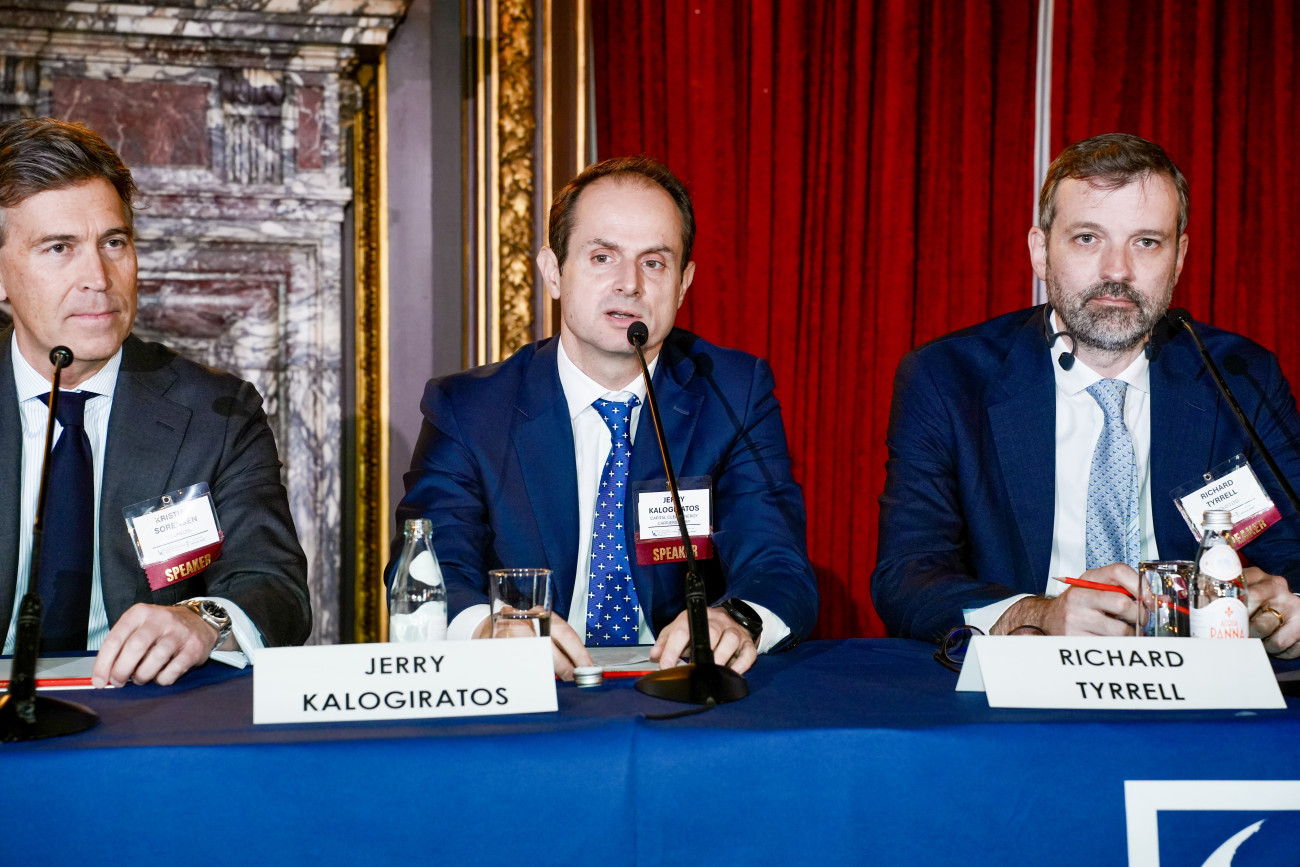
At the 19th Annual Capital Link International Shipping Forum, held Monday at the Metropolitan Club in Manhattan, energy transition and long-term prospects for liquefied natural gas (LNG) took center stage during a panel on the gas shipping sector. Among the speakers, Jerry Kalogiratos, CEO of Capital Clean Energy Carriers Corp. (NASDAQ: CCEC), offered a commanding outlook on LNG and carbon capture shipping, positioning his company at the forefront of an evolving maritime landscape increasingly shaped by clean energy demands and technological shifts.
“We own and operate the largest U.S.-listed fleet of two-stroke LNG carriers,” Kalogiratos said. “That’s 12 vessels on the water and six more on the way.” Backed by $2.5 billion in contracted revenue and a seven-year charter backlog, CCEC is betting heavily on what Kalogiratos called “energy transition cargos”—ranging from LNG and LPG to ammonia and liquid CO₂. 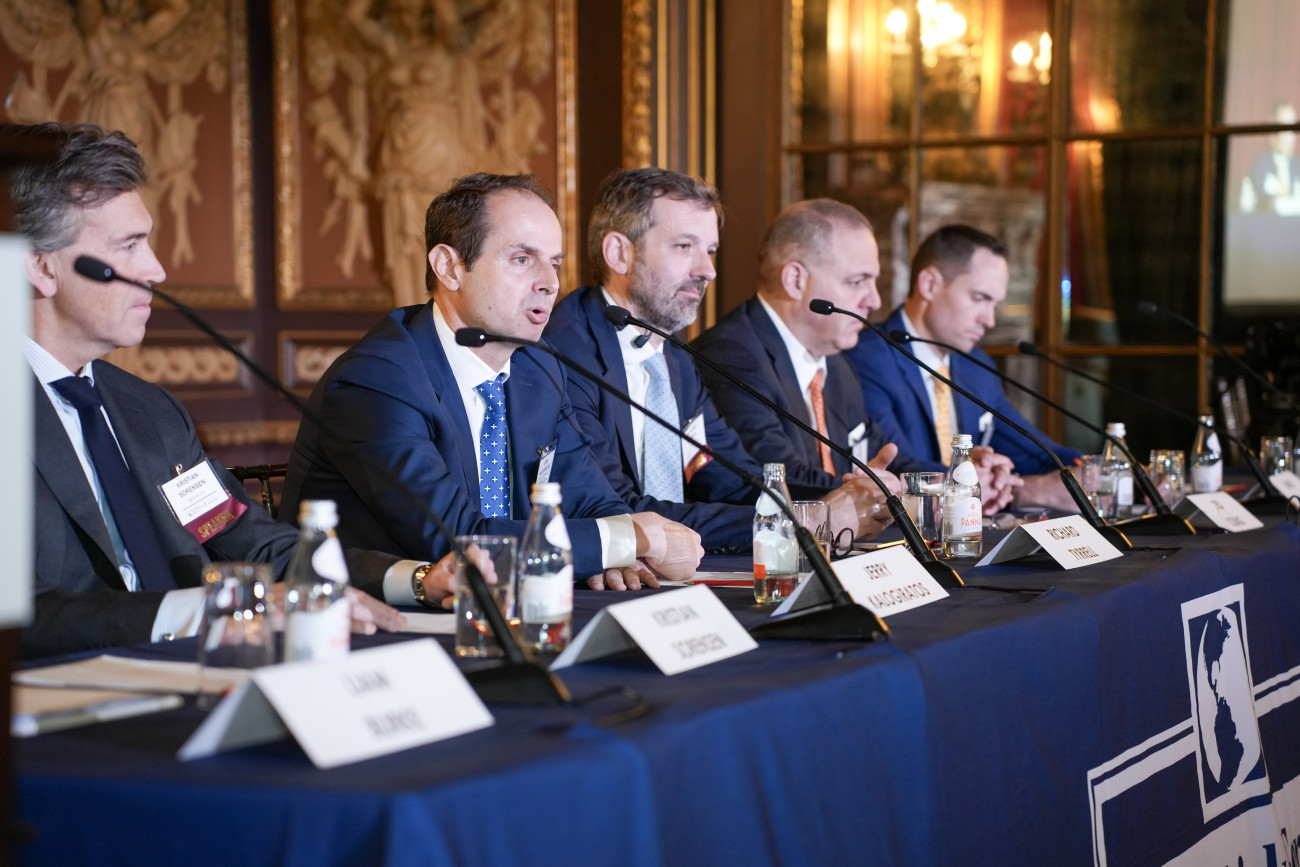
The LNG shipping market, Kalogiratos argued, is heading for a crunch. “We see the LNG market moving into balance in 2026/early 27. Strong 7-10 year charter rates remain robust reflecting underlying fundamentals for forward deliveries” he commented adding that supply delays in new export capacity—about 30 million tons per annum (MTPA) behind schedule—are expected to clear by 2026 and 2027, triggering a sharp tightening in vessel availability.
Yet perhaps more significant was Kalogiratos’ focus on carbon capture and storage (CCUS) transport, an emerging niche in the shipping world. CCEC owns four of the world’s first liquid CO₂ carriers—handy-sized, multi-gas vessels that Kalogiratos described as “a big part of a very small order book.” He sees these vessels playing a critical role in decarbonization, particularly in Europe, where projects like Norway’s Northern Lights and the EU-backed Stella Maris are ramping up.
Kalogiratos also cited rising energy needs from AI-powered data centers as a long-term tailwind for LNG demand, calling the market outlook “very strong” despite short-term volatility.
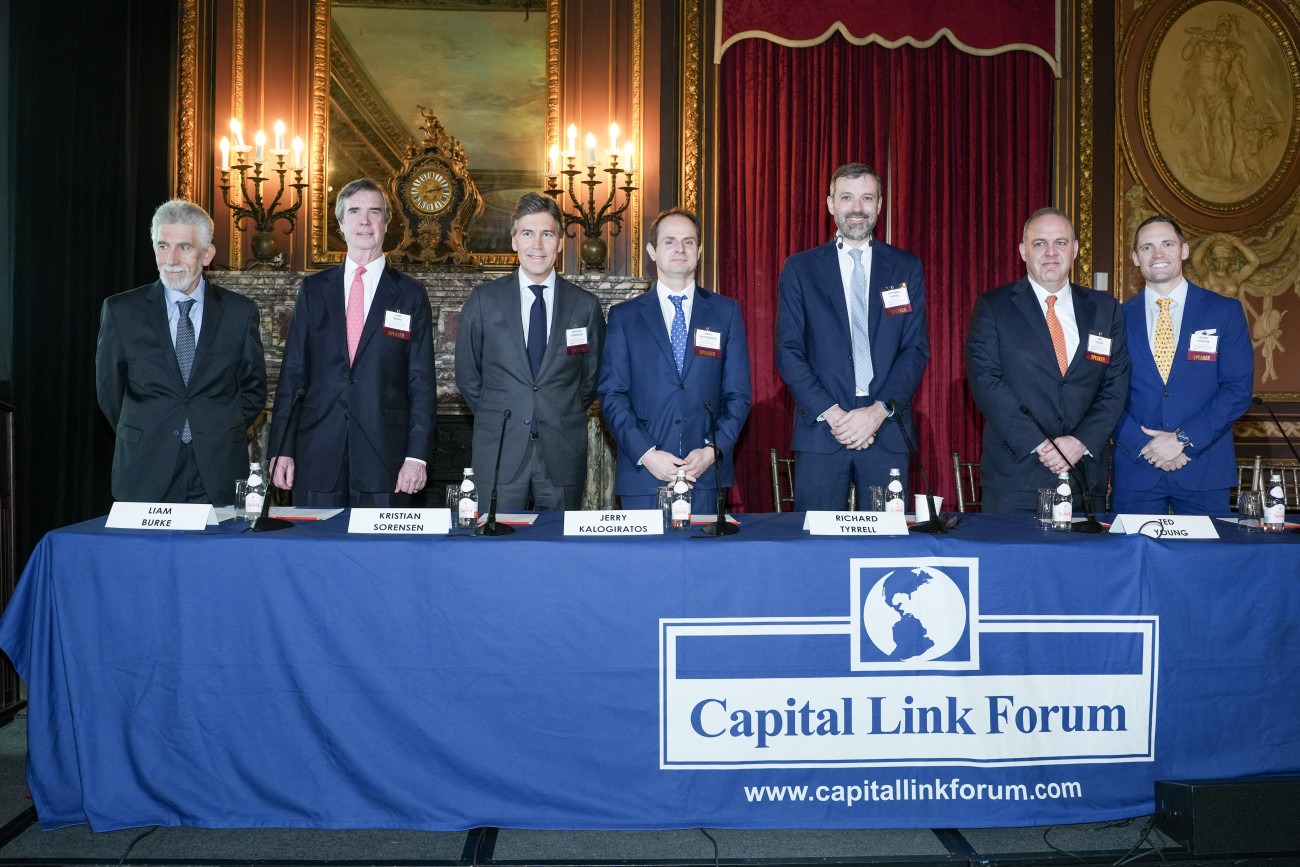
Nikos Bornozis (Capital Link), Liam Burke (B Riley Securities), Kristian Sorensen (BW LPG), Jerry Kalogiratos (Capital Clean Energy Carriers Corp.), Richard Tyrrell (Cool Company), Ted Young (Dorian LPG) and Randy Giveans (Navigator Gas)
Other panelists echoed the upbeat tone on gas shipping. Richard Tyrrell, CEO of Cool Company (NYSE: CLCO), acknowledged temporary pressure on LNG due to a breakdown in inter-basin arbitrage but maintained that U.S. export growth and longer sailing distances bode well for future shipping demand.
For the liquefied petroleum gas (LPG) segment, BW LPG CEO Kristian Sorensen said underlying commodity dynamics remain robust, with rising demand in Asia and potential new growth in Africa. Dorian LPG’s CFO Ted Young added that LPG continues to gain ground in petrochemicals and that fleet growth remains manageable.
Randy Giveans, Head of Investor Relations at Navigator Gas, focused on diversification as a buffer against macroeconomic uncertainty. “We transport seven commodities across multiple continents,” he said. “That gives us a degree of earnings stability, especially with a balanced mix of spot and time-chartered exposure.”
Source: In.gr
Latest News

Cost of Living: Why Greece’s 3% Inflation Is Raising Alarm
Greece appears to be in a more difficult position when it comes to price hikes, just as we enter the era of Trump’s tariffs.

Fitch Ratings Upgrades the Four Greek Systemic Banks
NBG’s upgrade reflects the bank’s ongoing improvements in its credit profile, Fitch notes in its report, including strong profitability, a reduction in non-performing exposures (NPEs), and lower credit losses

Trump to Announce Sweeping New Tariffs Wednesday, Global Retaliation Expected
With Trump's announcement just hours away, markets, businesses, and foreign governments are bracing for the fallout of one of the most aggressive shifts in U.S. trade policy in decades.

Inflation in Greece at 3.1% in March, Eurostat Reports
Average inflation in the eurozone settled at 2.2%, compared to 2.3% in February

Greece’s Unemployment Rate Drops to 8.6% in February
Despite the overall decline, unemployment remains higher among women and young people.

Santorini Safe and Ready for a Dynamic Tourism Season
Authenticity, cultural heritage, and genuine experiences at the center of Santorini's new promotional campaign

Electricity Bills: Greece Announces Reduced Tariffs Schedule
Greece will now offer lower electricity rates between 11:00-15:00 and 02:00-04:00

Chevron Confirms Eyeing Natural Gas Exploration South of Crete
Chevron recently declared its intent to explore a third area, south of the Peloponnese.
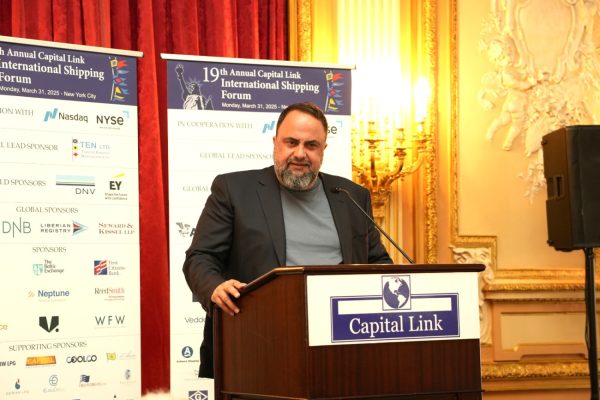
Evangelos Marinakis: A time of change from which shipping can benefit
Speaking at the 19th Annual Capital Link International Shipping Forum Evangelos Marinakis stressed the challenges that shipping faces today

Retail Trade in Greece Up 2.5% in December 2024: ELSTAT
In January 2025, the General Turnover Index recorded a 2.5% increase compared to January 2024. Compared to December 2024, it recorded a significant decline of 18.4%












![Τουρκία: Μεγάλες βλέψεις για παραγωγή ηλεκτρικών οχημάτων [γράφημα]](https://www.ot.gr/wp-content/uploads/2025/03/ot_turkish_autos-90x90.png)











![ΕΛΣΤΑΤ: Αυξήθηκε η οικοδομική δραστηριότητα κατά 15,6% το Δεκέμβριο [πίνακες]](https://www.ot.gr/wp-content/uploads/2025/03/DSC9655-2-1024x569-1-90x90.jpg)

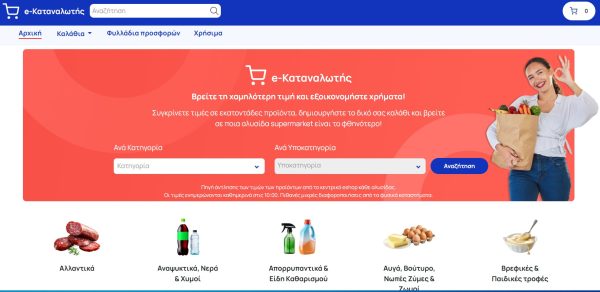
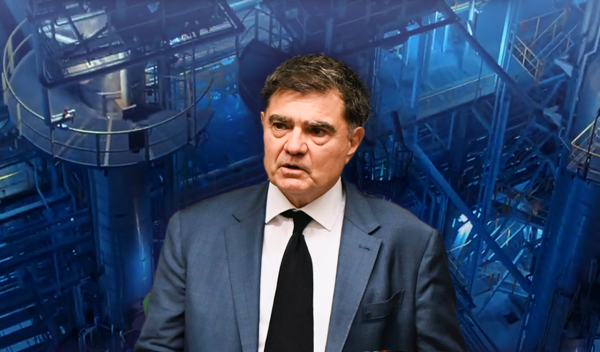

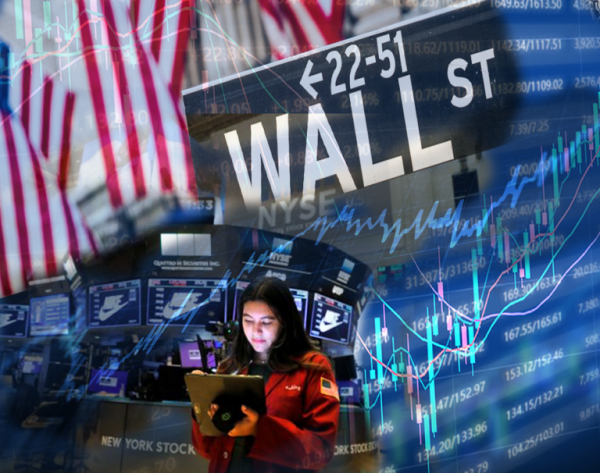
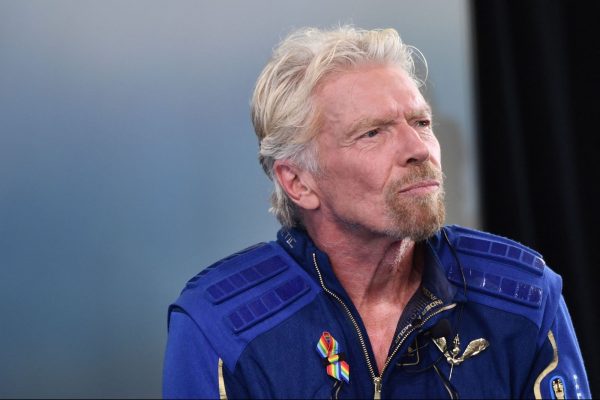
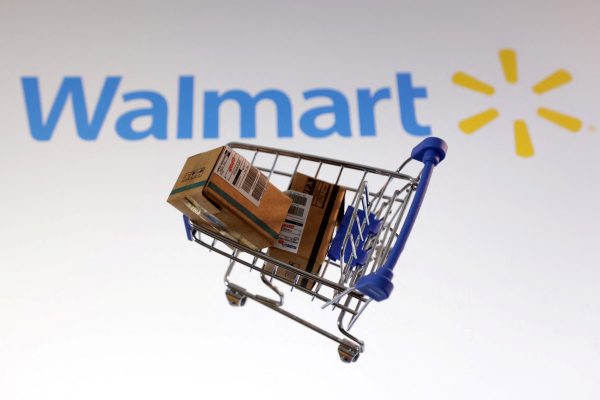
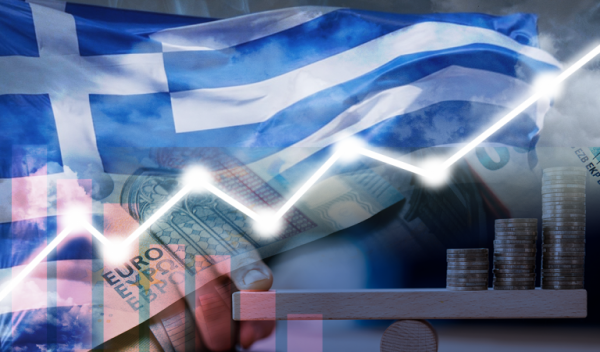
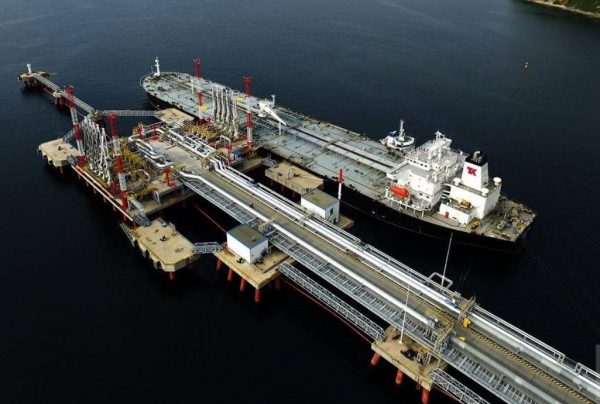
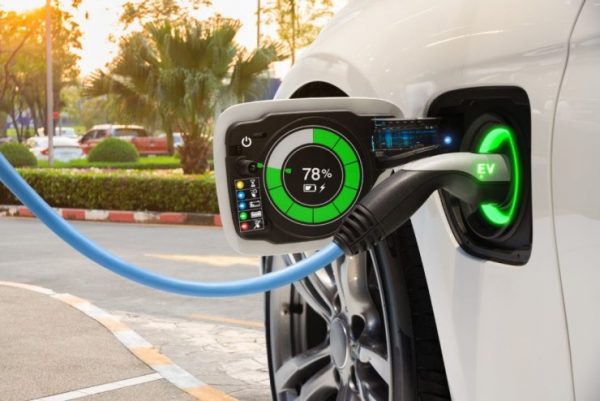

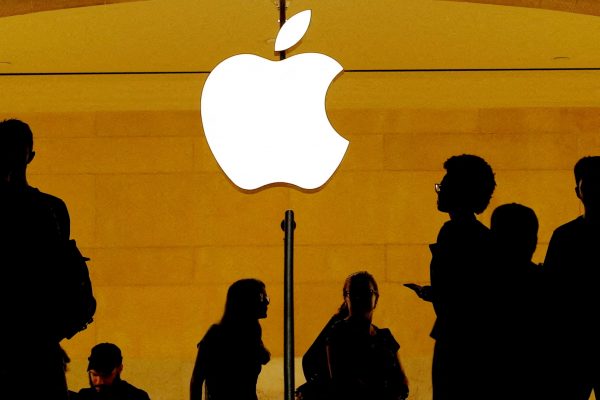





 Αριθμός Πιστοποίησης
Αριθμός Πιστοποίησης